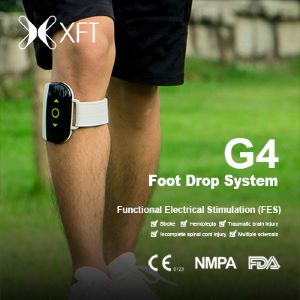Cancer
Personal, Disability, and Psychosocial Correlates of Career Barriers Among Young Adult Brain Tumor Survivors
Wednesday, November 1, 2023
2:45 PM - 2:51 PM
Location: Station 8
.jpg)
Teresa A. Granger, CRC (she/her/hers)
Assistant Professor
University of Alabama
Tuscaloosa, Alabama, United States
Poster Presenter(s)
Research Objectives: Given the increasing numbers of children surviving brain tumor into adulthood, there is a greater need for practitioners who are familiar with their career-related needs. To identify sociodemographic, disability, and psychosocial characteristics associated with perceived career barriers (PCB) among young adult survivors of childhood brain tumor (YA-SCBT).
Design: We conducted two three-step hierarchical regression analyses to examine the relationship between psychological variables and internal and external PCB after controlling for demographic and disability-related variables.
Setting: Participants were recruited from the young adult membership of the Children’s Brain Tumor Foundation and administered an online survey.
Participants: 136 YA-SCBT. Age: M=23.77 (SD=3.08). Majority male (65%), Caucasian (75.0%), employed (63.2%), and high school diploma or above (77.9%). Time since diagnosis: M=14.09 years (SD=4.60).
Interventions: N/A
Main Outcome Measures: Functioning: WHO-DAS 2.0 (Üstün et al., 2010). Social self-efficacy: Cognitive-Behavioral Social Self-Efficacy scale (CBSSE; Grieve et al., 2014). Stress: Perceived Stress Scale (PSS; Cohen & Williamson, 1988). Psychological inflexibility: Acceptance and Action Questionnaire (AAQ-II). Perceived career barriers: Perceived Barriers Scale (PBS; Strauser et al., 2019) was developed for YA-SCBT. It has two domains: internal and external PCB.
Results: Psychological and functional limitations were associated with greater PCB. Psychological variables accounted for a significant proportion of the variance for both internal and external PCB. Functional disability and psychological inflexibility were associated with internal PCB. Whereas, race, functional disability, and psychological inflexibility were associated with external PCB.
Conclusions: Findings support that rehabilitation professionals should focus on psychological and physical functioning in career intervention beyond interests, values, and skills. How YA-SCBT perceive their psychological and physical functioning influences how they perceive career barriers associated with their functioning or characteristics. Rehabilitation professionals should address coping with psychological and functional limitations to increase participation in work.
Author(s) Disclosures: No disclosures or conflicts of interest to report.
Design: We conducted two three-step hierarchical regression analyses to examine the relationship between psychological variables and internal and external PCB after controlling for demographic and disability-related variables.
Setting: Participants were recruited from the young adult membership of the Children’s Brain Tumor Foundation and administered an online survey.
Participants: 136 YA-SCBT. Age: M=23.77 (SD=3.08). Majority male (65%), Caucasian (75.0%), employed (63.2%), and high school diploma or above (77.9%). Time since diagnosis: M=14.09 years (SD=4.60).
Interventions: N/A
Main Outcome Measures: Functioning: WHO-DAS 2.0 (Üstün et al., 2010). Social self-efficacy: Cognitive-Behavioral Social Self-Efficacy scale (CBSSE; Grieve et al., 2014). Stress: Perceived Stress Scale (PSS; Cohen & Williamson, 1988). Psychological inflexibility: Acceptance and Action Questionnaire (AAQ-II). Perceived career barriers: Perceived Barriers Scale (PBS; Strauser et al., 2019) was developed for YA-SCBT. It has two domains: internal and external PCB.
Results: Psychological and functional limitations were associated with greater PCB. Psychological variables accounted for a significant proportion of the variance for both internal and external PCB. Functional disability and psychological inflexibility were associated with internal PCB. Whereas, race, functional disability, and psychological inflexibility were associated with external PCB.
Conclusions: Findings support that rehabilitation professionals should focus on psychological and physical functioning in career intervention beyond interests, values, and skills. How YA-SCBT perceive their psychological and physical functioning influences how they perceive career barriers associated with their functioning or characteristics. Rehabilitation professionals should address coping with psychological and functional limitations to increase participation in work.
Author(s) Disclosures: No disclosures or conflicts of interest to report.
Learning Objectives:
- Upon completion, participants will be able to identify variables associated with internal perceived career barriers among young adult survivors of childhood brain tumor.
- Upon completion, participants will be able to identify variables associated with external perceived career barriers among young adult survivors of childhood brain tumor.
- Upon completion, participants will be able to explain why addressing career-related needs is salient to young adult survivors of childhood brain tumor.

.jpg)
